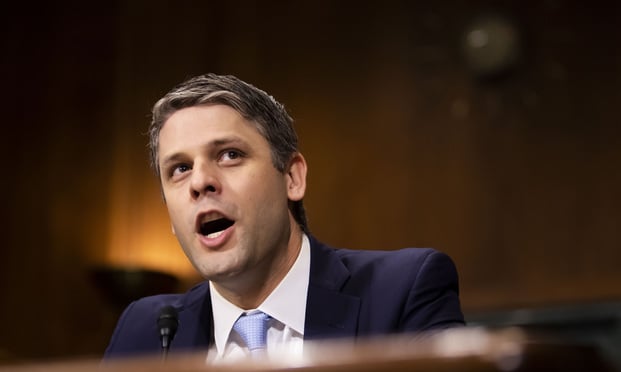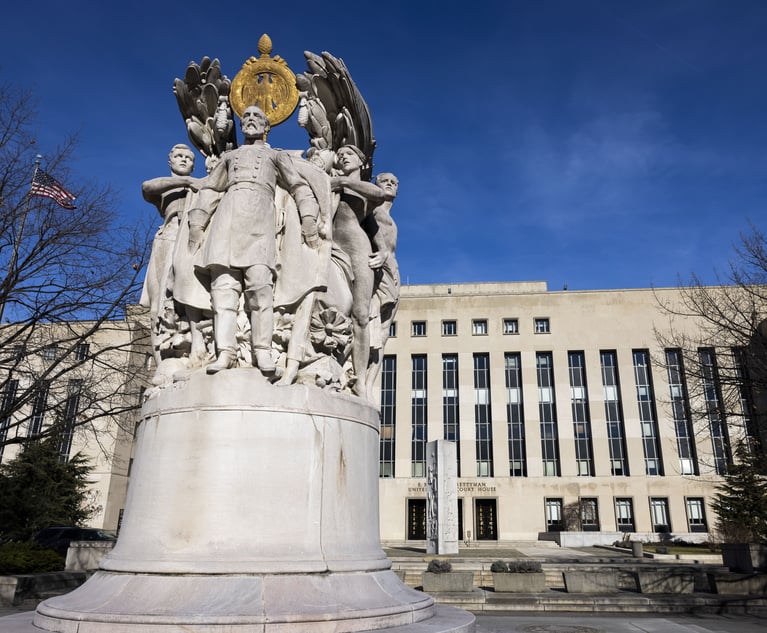When Justin Walker was nominated for a judgeship on the Western District of Kentucky last year, 16 faculty members and staff who taught alongside Walker at the University of Louisville’s Brandeis School of Law signed a letter in support of their colleague.
“Although we are a diverse group with varying perspectives on the law, we share in common the view that Justin will be an exemplary judge who will serve the Western District and the federal bench extraordinarily well,” reads the letter, addressed to top senators on the Judiciary Committee.

 Justin Walker testifies before the Senate Judiciary Committee during his confirmation hearing to be U.S. district judge for the Western District of Kentucky, on July 31, 2019. Photo: Diego M. Radzinschi/ALM
Justin Walker testifies before the Senate Judiciary Committee during his confirmation hearing to be U.S. district judge for the Western District of Kentucky, on July 31, 2019. Photo: Diego M. Radzinschi/ALM








